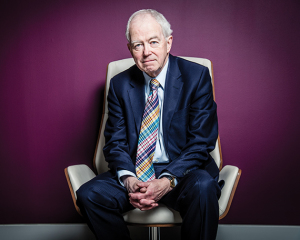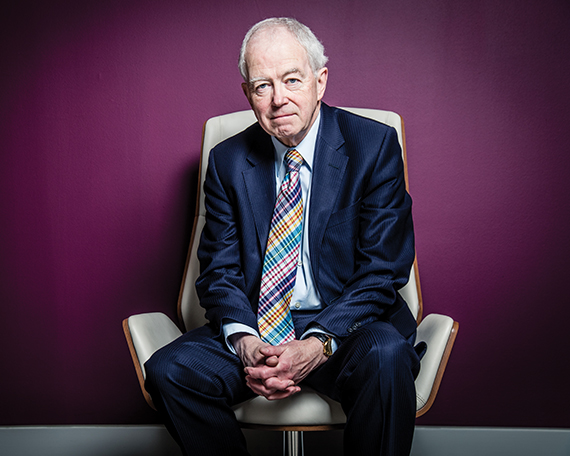
“It is no understatement to say that valuations underpin the global economy – we therefore face enormous risks if businesses and real estate are incorrectly valued.” Sir David Tweedie is, as he puts it, making noise about global valuation standards. And when a man this experienced, authoritative and engaging speaks, you listen.
Tweedie is chairman of the board of trustees at the International Valuation Standards Council, which is embarking on the next stage of its bid to establish and maintain effective, high-quality valuation and professional standards as far as possible across the world.
The IVSC is in the final weeks of its three-month consultation on new and updated standards that, according to Tweedie, reflect the body’s continuing commitment to developing “high quality international standards which underpin consistency, transparency and confidence in valuations across the world”.
The role of the IVSC
The IVSC maintains standards for the reporting and disclosure of valuations, particularly those that are relied upon by investors and other third-party stakeholders in financial statements or other published documents. Its mission statement is “to establish and maintain effective, high-quality international valuation and professional standards, and to contribute to the development of the global valuation profession, thereby serving the global public interest”.
As part of that ongoing process, the IVSC is consulting both on updated International Valuation Standards (IVS) and the newly created International Professional Standards (IPS).
International Valuation Standards
Tweedie explains that the update to the IVS will ensure that they remain fit for purpose, and provide the necessary clarity and market efficiency for valuations, which form a vital part of financial statements and support secured lending and transaction activity. Without robust standards for these valuations, businesses, lenders and investors are put at risk from unreliable financial information which could cause significant problems for global markets.
The scale of those repercussions is something Tweedie is all too aware of following the financial crisis of 2007-2008, when, in his former role as chairman of the International Accounting Standards Board (IASB), the scale of the disparity in valuation of financial instruments was made frighteningly clear at a meeting of the Financial Stability Board. It was just weeks after the collapse of Lehman Brothers, and, Tweedie says: “You could smell the fear in the room. There was clearly a view that the whole capitalist system could go down. Markets were tumbling, everything was going south. I was asked: ‘What are you accountants doing about valuation?’ And my reaction was, we don’t do valuation, that’s not our role; there are people out there who do that. We record what the numbers are. Then we discovered that there was nobody out there doing this with financial instruments.”
His fascination piqued, Tweedie worked alongside his opposite number at the Financial Accounting Standards Board in the US, putting a group together to start confronting this problem head on. “It really shook me, because a lot of accounting is based on fair values,” he says. “I came in from the angle that something was not right – we had to do something more about valuing financial instruments.”
Once his two terms at the IASB were up, Tweedie joined the IVSC in 2012 – something he sees as a natural progression. “Valuations are at the tough end of accounting. It’s about the valuation of liabilities and the fair value of assets. That is the reason I’m here. It’s still an extension of the accounting problem,” he says.
International Professional Standards
Meanwhile, the new IPS seek to establish a high quality approach to the education, development, assessment and conduct of professional valuers, strengthening the profession across the globe.
Tweedie says: “The creation of the International Professional Standards is a particularly important step for the valuation profession. They will be vital in ensuring valuers act in the public interest, and will be instrumental in defining and promoting professionalism in the industry.”
The IVSC is seeking to harmonise international standards on such career fundamentals as entry requirements, competencies, required experience before qualification, CPD, ethical standards, discipline – “the sort of things that make a profession”, as Tweedie puts it.
“The idea is to set these all out and, once they are finalised, applicants for membership of IVSC can be tested against them. My ultimate view is that the member body should be able to issue successful applicants with an additional credential – I’m making it up now – let’s say ‘international real estate valuer’. People in whatever country would then know that that person had been trained to the standards acceptable elsewhere.”
Tweedie admits that enthusiasm for the process does vary around the globe, but currently almost 60 countries are on board and he feels the IVSC will continue to gain momentum in the same way that the IASB’s International Financial Reporting Standards (IFRS) evolved before it.
“We started the IASB as what we felt was going to be a think tank,” he explains. “We would come out with what we thought were the ideal standards and, throughout the world, people could pick these up if they wished to. It was only when the European Union said that all the listed countries in Europe were going to have to use IFRS standards that we suddenly became Europe’s standard-setter. Then Australia, New Zealand, South Africa, Hong Kong all made the same decision.
“Now there are about 130 countries using IFRS, but when we started it was only a few. IVSC is now going through the same process. What will make IVSC take off is when the regulators say these standards are of such quality that we want you to use them. That is what we are aiming for.
“There are wide differences around the world, and we are trying to bring them to a standard – and not a low standard, a high standard. That’s the level, to raise the bar. That is why the international credential is so important – it shows people that you belong to an organisation that has these standards, and you can be trusted.”
Having mentioned the IFRS, Tweedie welcomes this year’s IFRS 16, which transforms the way companies must account for lease liabilities on their balance sheets. He says: “It has taken 20 years to get that in. There has been massive opposition to it and yet there has been trillions of dollars of leasing obligations left off balance sheets.
“I have been quoted extensively on the basis that one of my ambitions is to fly in an aircraft that’s on an airline’s balance sheet. They haven’t been, and the reason they have not is that the standards that have been there for 20-odd years, while consistent internationally, are absolutely hopeless. Basically you only showed the liability and the asset on balance sheets if the present value of the payments you made at the beginning were 90% of the value of the asset to start with. And, well, you can imagine, people started to play games with that – they all came in at 88% and none of them were on balance sheets.”
For Tweedie, it is obvious that a lease contract is a liability, and he is delighted that this has finally been recognised – a move he believes will “transform balance sheets”.
Transparency
For Tweedie, such transparency is key – making sure that reported figures accurately reflect true values of real estate and financial instruments.
“People have got to know what liabilities are out there,” he says. “Now it will be very obvious. The same thing happened with pension liabilities. Ten years ago they weren’t visible, and what a fight we had to get those on balance sheets because most companies had big deficits. I appeared in the Daily Mail as the man who destroyed your pension, a big photograph, because a lot of people stopped final salary schemes when they realised what they were racking up. I said, ‘I’m not wrecking your pension, I’m just showing you what the position is!’”
And that transparency, he believes, can only help in avoiding the scale of economic disruption that occurred in 2007/2008 happening again. The mistakes are there to be learned from.
“Take Lehmans, when it went down there were a few white knights that started to appear. Until they looked at Lehmans’ valuations of its assets and they vanished. They just said, these numbers are way off the scale. They just took fright and disappeared. That is the sort of thing that can happen. That’s the danger – if there isn’t proper transparency and the numbers aren’t in reasonably the same ballpark.
“You will never get a valuation agreed to three decimal places, but if you remove some of the inconsistencies – and there are some big ones – then you feel much more confident about firstly financial stability, and secondly financial reporting. It’s about making sure that the numbers make sense and people can be confident in them.”
Tweedie is enthusiastic about the IVSC’s consultation process, calling on valuation professionals and stakeholders to review and comment, and he looks forward to reading the valuable input from industry peers – even if it comes in close to the 7 July deadline. “We always like to get the comments in early, but invariably they come in towards the end,” he laughs. And when the process is over, and the final standards adopted, the IVSC will be one step closer to accomplishing that mission statement.
For the driven Tweedie, a truly global valuation profession is inevitable: “We still have a long way to go, but the more noise you make and the more backing you get, it becomes harder to fight against it. It will happen, it’s just a question of time.”








